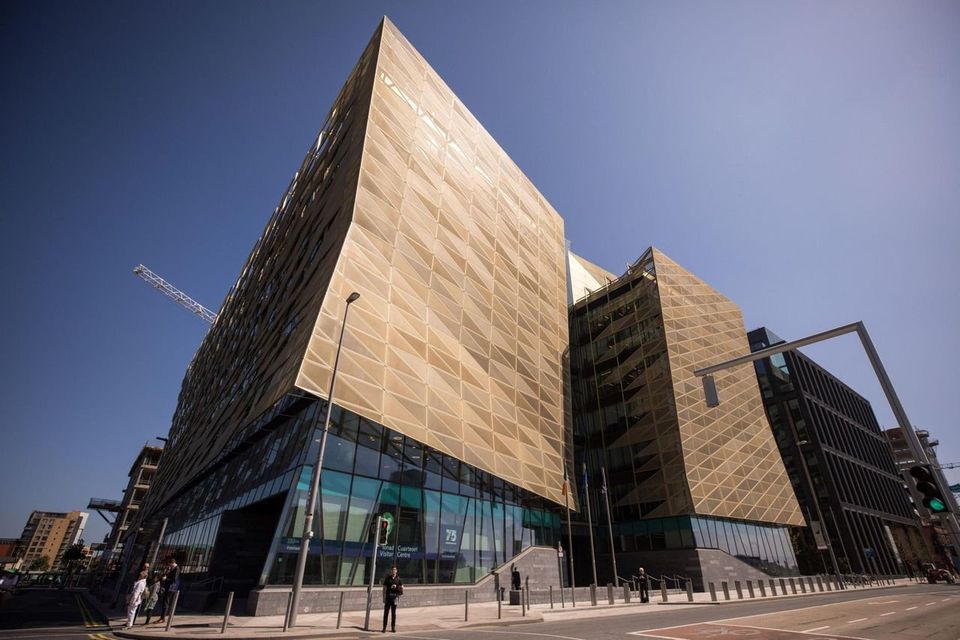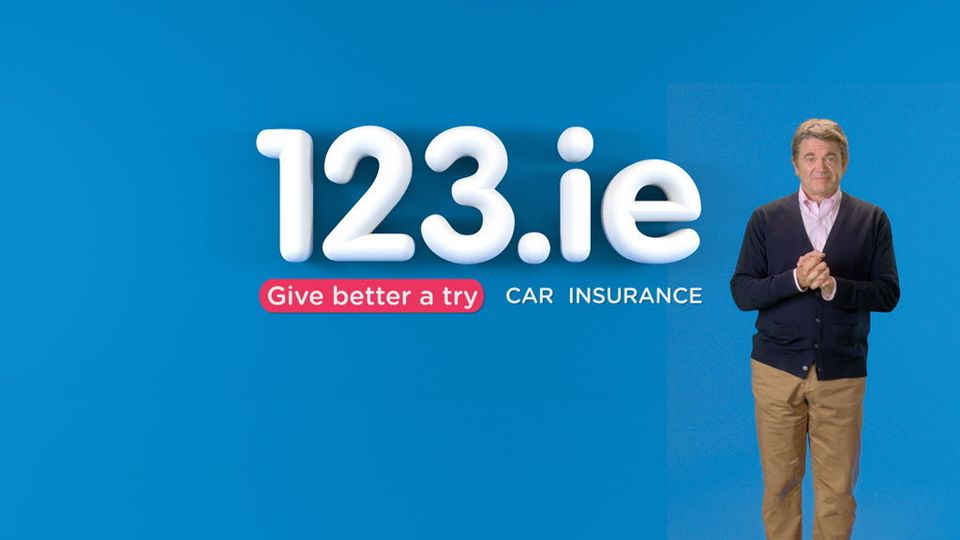[ad_1]
The peer-to peer lender has hit a €250m lending landmark – but its ambitions go much farther than that, says CEO Niall O’Grady
Inside, Linked CEO Niall O’Grady outlines a new landmark figure for the peer-to-peer lender: it has just hit €250m in total lending since it came on the scene 10 years ago.
On the shelf behind him is lined up an array of products from high-profile and up-and-coming Irish brands that have benefited from the peer-to-peer lending model that it has operated now for 10 years. It’s a roll call of disruptive faces: Chopped, the Happy Pear, Lolly & Cooks, Ballyfermot craft brewers Whiplash, Bear Market Coffee and Rolling Donut to name just a few.
Linked has experienced huge growth year after year in recent times, not least because of the departure of both KBC and Ulster Bank from Ireland. In 2020 it loaned just €19m. That went to €36m the following year and €45m last year.
Half the money that Linked has to invest comes from private equity funding but the other half comes from individual Irish investors
“This year we’re targeting €65m and we’re on track to deliver that. So that’s compound annual growth of about 50pc every year. We’re aiming for €85m next year. And then by 2025, we want to be over €100m.”
Hitting that €100m lending per year mark will be a major milestone, says O’Grady.
“I think it brings a degree of scale, better negotiation on rates. And also you’re able to consider going into new markets, new products, things like that. We become a one-stop-shop for all SME financial needs, not just the lending we do right now.”.
Lending is up 90pc in the first six months of 2023 but he’s not prepared to put a timeline on when Linked will hit the even bigger milestone of €1bn in total loans. But he agrees that in four to five years – on current trajectories – it could certainly be in touching distance.
“It’s a virtuous circle. The more people deal with us, the more they like dealing with us and the more they talk about us to their friends. That is worth a lot more than a 30-second TV ad to us.”
Growth brings greater scrutiny.
The firm is currently in the process of becoming regulated by the Central Bank – a move that O’Grady says will open the door to a number of potentially game-changing possibilities, including the ability to take in pension fund money.
It will also clear the way for potential future mergers or tie-ups with other peer-to-peer lenders in Europe and the UK, he says.
The firm is currently in the process of becoming regulated by the Central Bank – a move that O’Grady says will open the door to a number of potentially game-changing possibilities
“I don’t want to pre-empt the regulation process but we’re quietly confident that it can be done by November.
” It’s a tough process as you would expect it to be with the Central Bank. But overall, we’ve been looking for regulation of this sector probably for the last three years because the reputation of the sector is absolutely critical.
“I think any organisation in the alternative lending space should be regulated, either through the regulatory framework we’re going through or something else.”
Regulation will bring some very real benefits to the business.
“We can talk to some funders like pension funds, that will require any organisation they partner with to be regulated. So that’s really important. It’s a big win for us.
” And secondly, this is EU-wide regulation. So we can start potentially next year talking to other international, peer-to-peer lenders, and we might join up.
“So why wouldn’t we, for example, be part of an international peer-to-peer lending organisation that’s over in the continent in the UK, and Ireland?”
On both fronts – new funders and international opportunities – Linked has already begun to explore the possibilities.
“We have had initial conversations with them. We’re not really going to advance them until the regulatory approval is in the organisation.
“But we know who to speak to and we’ll be having those conversations next year.”
We’re a fintech version of the credit union in a way
When pushed, O’Grady is reluctant to reveal any more details.
“We have no plans, we’re only having conversations, and we’re only looking at the opportunity. But if that was to happen it would be over the next couple of years.”
But, he explains, the idea of joining forces with other European peer-to-peer players would bring advantages.
“So if we have a requirement this year for €65m, and someone, let’s say in Germany, has a requirement for €235m – and I’m just making the numbers up here – then suddenly, you put them together, you’ve got a €300m requirement and your negotiation with funders can improve.
“You might have lower-cost funding, which you can then pass on to your borrowers with more competitive rates and that, in turn, will help you to grow faster.”
A second advantage would be the potential to share a platform and the cost of technology. He cites the UK, Spain, Italy, and Germany as markets where the peer-to-peer lending market is particularly well developed.
“It actually opens up new opportunities for the retail investors because they can then start considering investments in UK or German SMEs.
“But, again, going international, isn’t our number one business priority right now. Our number one priority is to continue to grow and support Irish SMEs.”
‘The great thing about C&C was the entrepreneurial spirit. It was fighting the big guys like Coca Cola all the time,’ O’Grady says
O’Grady was headhunted two years ago from insurance giant RSA, where he was the MD of its successfully disruptive 123.ie brand. He had first heard of Linked a few years previously on the family grapevine.
His father, a retired bank manager, who passed away two years ago, had never made a habit of talking financial services to his son.
“He was much more likely to talk to me about Cavan GAA. But he had come across these ads for Linked Finance about seven years ago.”
Growing up as a bank manager’s son meant moving home was a fact of life . His father went from postings in Dundalk, to Athy, to Kildare, to New Ross, Co Wexford.
O’Grady wanted to work anywhere but the bank. After college he went to Brussels to work in the European Commission in telecommunication and then moved to a sales and marketing role in Proctor & Gamble in France.
“I was working in young skincare – Biactol and Clearasil – and then in hair care, on products like Wash&Go and Pantene.”
Really small disruptors – like us – we have to create the disruption, we have to create awareness, we have to build credibility
He returned to Ireland and was working for Cantrell & Cochrane on brands such as Bulmers, Ballygowan and Miwadi.
“The great thing about C&C was the entrepreneurial spirit. It was fighting the big guys like Coca Cola all the time,” he says.
He then took a role with Permanent TSB as the Celtic Tiger was roaring: “I was with them in the days of high growth and in the days of nationalisation. 2012 was a tough time.”
But in the marketing department there was a degree of protection as the focus shifted from selling mortgages to trying to attract deposits and to creating an e-commerce platform, in part to drive efficiencies.
In 2017 he moved on to 123.ie and brought from there an understanding of digital disruption and a mantra of “simplify everything, give outstanding customer service and automate as much as possible.”
Half the money that Linked has to invest comes from private equity funding but the other half comes from individual Irish investors who use its digital platform to track their investments in a whole range of Irish SMEs.
“People put in everything from €150 to €50,000. They like getting good returns but they like supporting Irish SME and, in many cases, they like knowing who the SME is.
“People will invest in a company in their local area because they recognise it. It brings the whole thing to life.”
In 2017 he moved on to 123.ie and brought from there an understanding of digital disruption
The pandemic brought a whole new focus on this type of community oriented investing.
“Covid was great for us. It brought the whole thing to life. That whole sense of community came to the fore.”
The firm has about 1000, very active lenders that are active on a daily basis and another 7,000 that are lending less frequently but who are still active, he says.
“Almost all of them started out with five or ten thousand euro. Some of them now have deposits of €100,000 on the platform.
“Our relationship with them is very close, very warm. I’d have spoken to about 150 of them over the last four to six weeks. We’re a fintech version of the credit union in a way. There’s a bit of a community feel to it. It’s technology led, but it’s got old-fashioned values too.
“With the departure of KBC and Ulster, the alternative lending sector has, I think, a window of opportunity for the next three years, which might never happen again. So you see some alternative lenders growing over the last number of years, and some like ourselves, really starting to put the pedal to the metal now.”
But as interest rates keep climbing – with no sign of stopping – stress points are emerging, he agrees. For example, deposit rates have not risen hugely at the banks but if and when they do, Linked may have to work harder to attract investment.
Covid was great for us. It brought the whole thing to life. That whole sense of community came to the fore
For now, the frenetic hustle and bustle from the small city centre businesses outside the office window continues apace and – with consumer confidence still buoyant – that’s the sound of opportunity for Linked and its SME borrowers.
But O’Grady is keeping a watchful eye on the domestic economy.
“Undoubtedly in very discretionary areas, like eating out in restaurants, as bills go up, discretionary spending goes down.
“We’re seeing that and we have to keep a close eye on it. And in many cases, we’re finding that, for example, restaurants are opening four days a week only.
“Initially, this was because they couldn’t get the staff to work. But now they don’t have the business to keep it open seven days a week. So they have one crew of staff, as opposed to two.
“And what they’re doing is they’re reducing their costs, in line with the revenue that they’re making as well. So that’s a good mature thing to do.”
O’Grady says the firm has a constantly changing watch-list of potentially problematic sectors. In recent times tourism, hospitality, construction have all featured from time to time but right now the retail sector – as its post-Covid digital future continues to unfold – is the key focus.
But, says O’Grady, none of that lessens his optimism.
“The good thing about being small is you always feel you have to be better than the big guys to win the business. Big companies always start with the advantage of awareness and credibility.
“If you’re big, you must know what you’re doing. Smaller companies, particularly really small disruptors – like us – we have to create the disruption, we have to create awareness, we have to build credibility.
“We need the people that are giving us money or borrowing from us to be advocates of us so that word spreads.”
Curriculum Vitae
Name: Niall O’Grady
Age: 58
From: New Ross, Co Wexford
Lives: Blackrock, Co Dublin
Family: Married to Aoife with four children aged between 21 and 28, Nicholas, Molly, Ella and Peter
Education: St Joseph’s Academy, Kildare; Good Counsel College, New Ross; followed by a BComm and MBS from UCD
Hobbies: Tennis and cycling
Favourite book: ‘Small Things Like These’ by Claire Keegan
Favourite movie: ‘The Unbearable Lightness of Being’
Business Lessons
What advice would you give a young person going into the world of business?
Experience in different industries and countries helps you realise that having a great team of people facing the right direction creates fantastic momentum, as long as you remember not to get in their way.
[ad_2]
Source link



